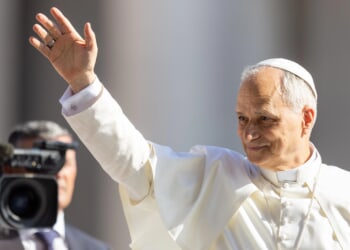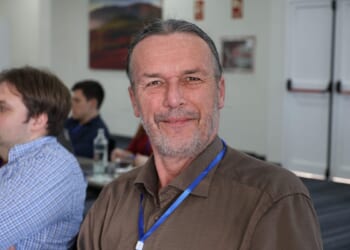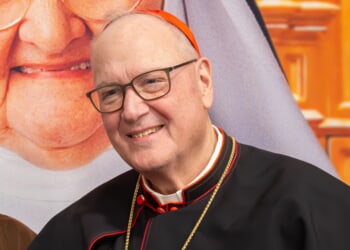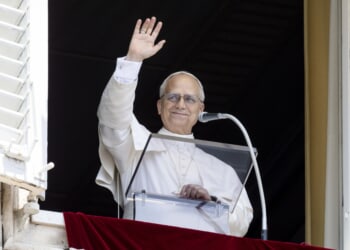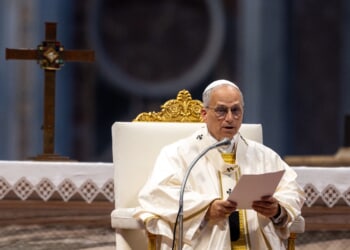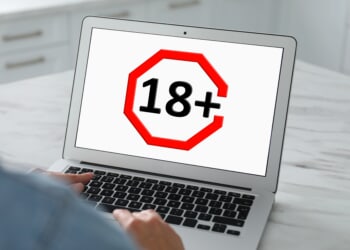Vatican City, Jun 26, 2025 /
09:23 am
Pope Leo XIV on Thursday called on governments and law enforcement agencies to focus their efforts on dismantling criminal organizations that profit from drug trafficking rather than punishing addicts.
Speaking to anti-drug campaigners in a courtyard of the Apostolic Palace on the International Day Against Drug Abuse and Illicit Trafficking on June 26, the pope issued a sharp rebuke of drug policy that targets the poor while powerful traffickers go unpunished.
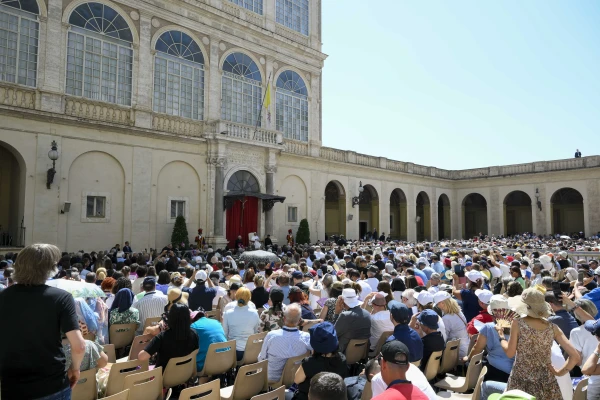
“There are enormous concentrations of interest and ramified criminal organizations that states have the duty to dismantle,” Pope Leo XIV said. “It is easier to fight their victims. Too often, in the name of security, war has been waged and is waged against the poor, filling the prisons with those who are only the last link in a chain of death. Those who hold the chain in their hands, on the other hand, manage to have influence and impunity.”
The pope’s remarks came as the United Nations Office on Drugs and Crime released its 2025 World Drug Report, which revealed sharp increases in cocaine production worldwide as well as the deadly toll of synthetic opioids like fentanyl.
According to the report, fentanyl was responsible for an estimated 48,422 deaths in the United States in 2024. Although overdose deaths in the U.S. have started to decline, fentanyl continues to dominate the North American opioid crisis. Global fentanyl seizures reached 19.5 tons in 2023 with 99% occurring in North America.
“Today, brothers and sisters, we are engaged in a struggle that cannot be abandoned as long as, around us, someone is still imprisoned in the various forms of addiction,” Pope Leo XIV said.
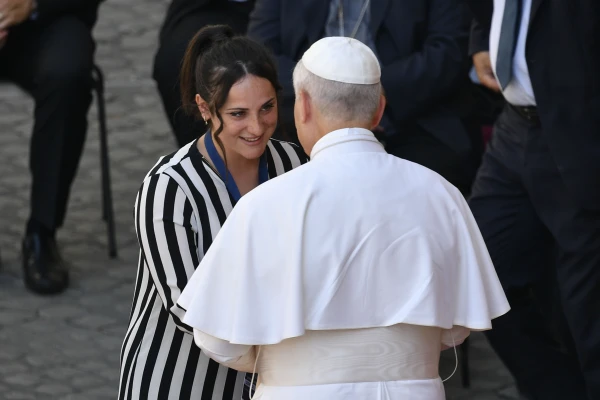
“Our fight is against those who make drugs and any other addiction — think of alcohol or gambling — their immense business.”
The U.N. report also flagged record levels of methamphetamine seizures and highlighted how the synthetic drug market, dominated by amphetamine-type stimulants, is expanding globally. Cocaine, meanwhile, has become the world’s fastest-growing illicit drug market, with production rising by nearly 34% in 2023, primarily due to increased coca bush cultivation in Colombia.
Violence tied to cocaine trafficking has also surged, particularly in the Americas. In Ecuador, the homicide rate soared from 7.8 per 100,000 people in 2020 to 45.7 in 2023. The report noted that similar patterns of violence, once confined to Latin America, are now spreading to Western Europe and other regions as criminal groups fight for control of lucrative new markets.
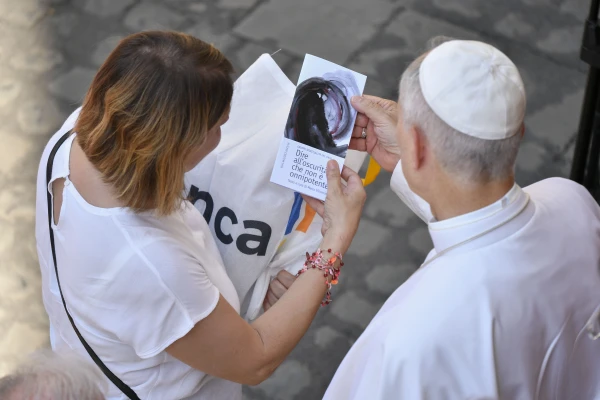
“Drugs and addictions are an invisible prison that you, in different ways, have known and fought, but we are all called to freedom,” the pope said. “Meeting you, I think of the abyss of my heart and of every human heart. It is a psalm, that is, the Bible, that calls the mystery that dwells within us an ‘abyss’ (see Psalm 63:7).”
“St. Augustine confessed that only in Christ did the restlessness of his heart find peace,” he added. “We seek peace and joy, we thirst for them. And many deceptions can disappoint us and even imprison us in this search.”
The theme of this year’s international day — “Break the cycle. #StopOrganizedCrime” — calls for long-term solutions to break the cycle of organized drug crime, including investment in education, prevention, and social services. Pope Leo XIV echoed those goals, emphasizing the need to uplift the dignity of each person and build communities of hope.
“Dear young people, you are not spectators of the renewal that our Earth needs so much … The Church needs you. Humanity needs you,” Leo said. “Together, over every degrading dependence, we will make the infinite dignity imprinted in each one of us prevail.”
(Story continues below)
Subscribe to our daily newsletter
“Unfortunately, this dignity sometimes shines only when it is almost completely lost. Then a jolt comes and it becomes clear that getting up is a matter of life or death,” he added. “Well, today all of society needs that jolt, it needs your testimony and the great work you are doing. We all have, in fact, the vocation to be freer and to be human, the vocation to peace.”
“Let us move forward together, then, multiplying the places of healing, of encounter, and of education: pastoral paths and social policies that begin on the street and never give anyone up for lost.”




